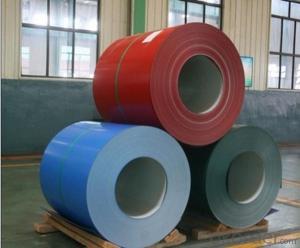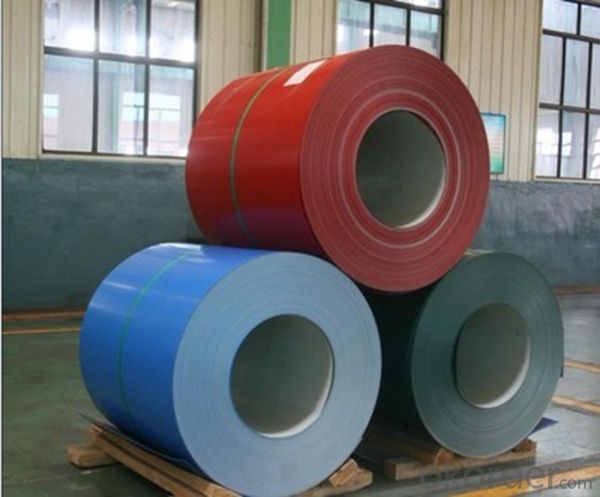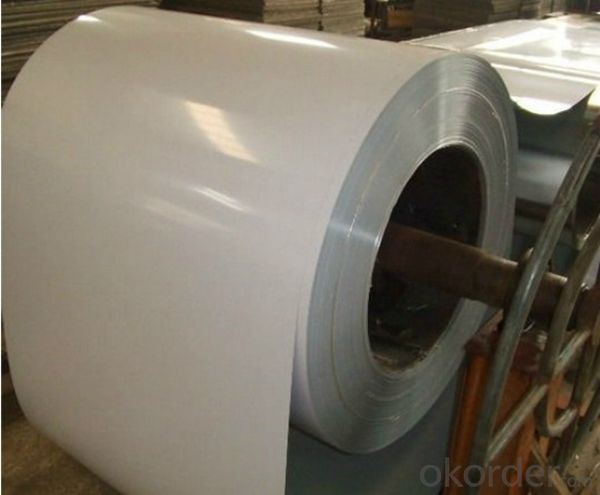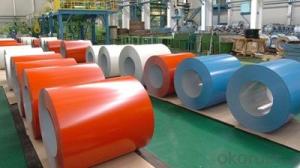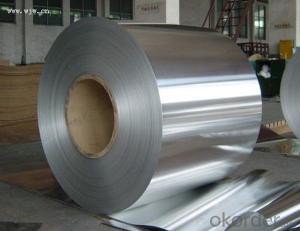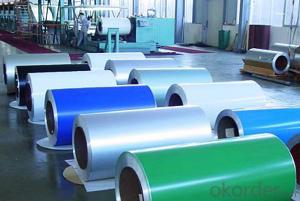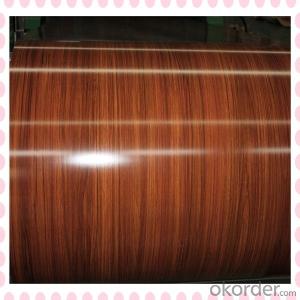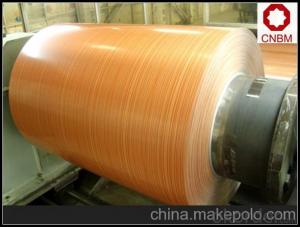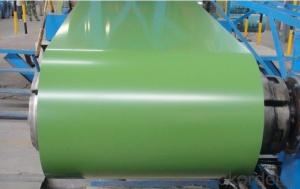Coil Aluminum Roll AA1100 Color Coated Aluminum Coil for Decoration
- Loading Port:
- Shanghai
- Payment Terms:
- TT OR LC
- Min Order Qty:
- 5 m.t.
- Supply Capability:
- 10000 m.t./month
OKorder Service Pledge
OKorder Financial Service
You Might Also Like
Specification
1. Specification of Color Coated Aluminium Coil AA1100 for Decoration
characteristics | Application |
1) Super peeling strength | 1) Building exterior curtain walls |
2) Excellent surface flatness and smoothness | 2) Decoration and renovation additions for old buildings |
3) Superior weather, corrosion, pollutant resistance | 3) Decoration of interior walls, ceilings, bathrooms, kitchens and balconies |
4) Even coating, various colors | 4) Shop door decorations |
5) Fireproof, excellent heat and sound insulation | 5) Advertisement board display platforms and signboards |
6) Superior impact resistance | 6) Wallboards and ceilings for tunnels |
7) Lightweight and easy to process | 7) Industrial materials, materials for vehicles and boats |
2. Application of Color Coated Aluminium Coil AA1100 for Decoration
(1).Interior: wall cladding, ceilings, bathrooms, kitchens and balconies, shutters, doors...
(2).Exterior: wall cladding, facades, roofing, canopies, tunnels, column covers , renovations...
(3).Advertisement: display platforms, signboards, fascia, shop fronts...
3. Feature of Color Coated Aluminium Coil AA1100 for Decoration
• Our goods quality is top, the surface is smooth, and every steel coil
• No Joint, No Bends, no spots, no roller marks.
• MTC will be provided with goods, third part inspection is acceptable, for example, SGS, BV. Etc
Be free from Oil Stain, Dent, Inclusion, Scratches, Stain, Oxide Dicoloration, Breaks, Corrosion, Roll Marks, Dirt Streaks and other defect which will interfere with use
4. Certificate:
SGS and ROHS(if client request, paid by client), MTC(plant provided), Certificate of Origin(FORM A, FORM E, CO), Bureau Veritas and SGS (if client request, paid by client), CIQS certificate
5. Image of Color Coated Aluminium Coil AA1100 for Decoration
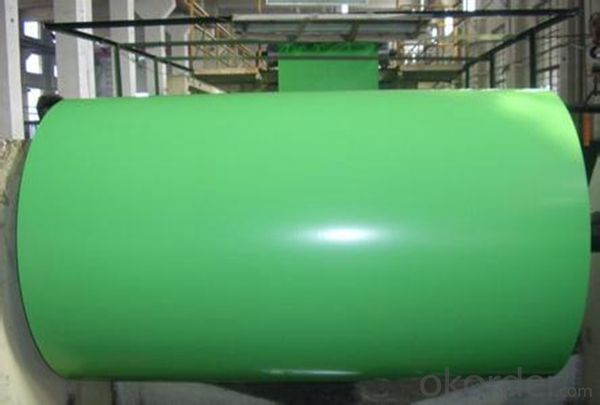
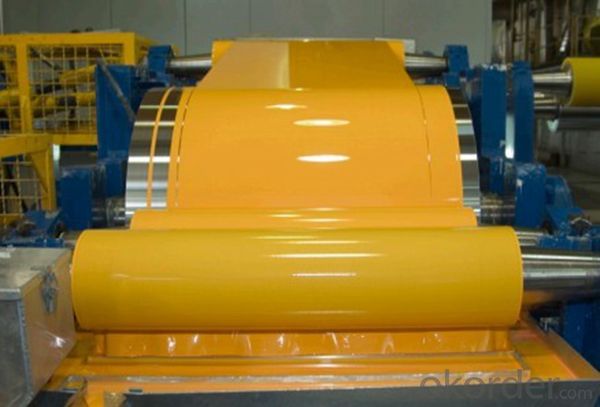
6. Package and shipping of Color Coated Aluminium Coil AA1100 for Decoration
eye to wall
eye to the wall
with wood pallet (wooded case also available)
7. FAQ
1) What is the delivery time?
Dpends on actual order, around 20 to 35 days
2)What is the QC system:
We have QC staff of 20 persons and advanced equipment, each production is with MTC traced from Aluminum ingot lot.
3) What market do you mainly sell to?
Australia, America, Asia, Middle East, Western Europe, Africa etc
- Q: How do aluminum coils contribute to energy-efficient windows and doors?
- The significance of aluminum coils in enhancing the energy efficiency of windows and doors cannot be overstated. To begin with, aluminum, being a highly conductive material, possesses the ability to efficiently transfer heat and cold. This characteristic enables aluminum coils to act as effective thermal barriers, preventing the exchange of heat from the exterior to the interior and vice versa. By reducing heat transfer, aluminum coils assist in minimizing the energy required for cooling or heating a structure, resulting in decreased energy consumption and lower utility bills. In addition, the lightweight and durable nature of aluminum coils makes them a preferred choice in the construction of window and door frames. Their lightweight attribute facilitates easier installation and operation of windows and doors, while their durability ensures long-lasting performance. Furthermore, the usage of aluminum coils permits the creation of sleek and narrow frame designs, optimizing the amount of glass area and allowing ample natural light to enter the building. This reduces the reliance on artificial lighting during daylight hours, further contributing to energy savings. Furthermore, aluminum is a highly recyclable material, and the utilization of aluminum coils promotes sustainability. By incorporating recycled aluminum in the manufacturing of these coils, energy-efficient windows and doors can be produced with a significantly lower carbon footprint. This aids in minimizing the environmental impact of the construction industry and contributes to a more sustainable future. In conclusion, the thermal barrier properties, lightweight and durable nature, as well as the recyclability of aluminum coils, make them indispensable in the creation of energy-efficient windows and doors. By reducing heat transfer, facilitating efficient installation, and decreasing the reliance on artificial lighting, aluminum coils play a vital role in the development of sustainable and energy-saving building solutions.
- Q: Can aluminum coils be used in curtain wall systems?
- Yes, aluminum coils can be used in curtain wall systems. Aluminum is a popular material choice for curtain walls due to its lightweight nature, durability, and corrosion resistance. Aluminum coils can be easily formed and shaped to create the desired profiles for curtain wall systems. Additionally, aluminum is available in a wide range of colors and finishes, allowing for customization and design flexibility. The use of aluminum coils in curtain wall systems also offers energy efficiency benefits, as aluminum has good thermal conductivity properties. Overall, aluminum coils are a suitable and commonly used material in the construction of curtain wall systems.
- Q: Are there any health or safety concerns related to aluminum coils?
- Aluminum coils can pose some health and safety concerns, especially in certain circumstances. One potential concern is the release of aluminum particles or fumes into the air, particularly during the manufacturing or processing of aluminum coils. Inhalation of these particles or fumes can potentially lead to respiratory issues or lung damage. Additionally, aluminum coils that are damaged or corroded may release aluminum ions into food or beverages, which can be harmful if ingested in excessive amounts. However, it is important to note that the risks associated with aluminum coils are generally minimal and can be mitigated through proper handling and maintenance. For instance, manufacturers typically employ various safety measures to prevent the release of aluminum particles or fumes during production. Furthermore, aluminum coils used in heating, ventilation, and air conditioning systems are typically coated or treated to prevent corrosion and the subsequent leaching of aluminum ions. To minimize any potential health risks, it is recommended to follow safety guidelines provided by manufacturers, such as wearing appropriate protective gear during handling, and ensuring proper ventilation in areas where aluminum coils are processed or installed. Additionally, regular inspection, cleaning, and maintenance of aluminum coils can help identify and address any potential issues before they become a health or safety concern. In conclusion, while there are some health and safety concerns related to aluminum coils, these risks can be managed through proper handling, maintenance, and adherence to safety guidelines. It is always advisable to consult with professionals or manufacturers for specific instructions and recommendations related to the utilization and maintenance of aluminum coils in order to ensure maximum safety.
- Q: Can aluminum coils be used in the production of consumer electronics?
- Yes, aluminum coils can be used in the production of consumer electronics. Aluminum coils are commonly used in various electronic devices, such as smartphones, laptops, and televisions, due to their lightweight, high conductivity, and thermal efficiency properties. They are used in components like heat sinks, connectors, and circuit boards to ensure efficient heat dissipation and electrical conductivity, thereby enhancing the performance and reliability of consumer electronics.
- Q: Can aluminum coils be used in curtain wall systems?
- Curtain wall systems can indeed incorporate aluminum coils. The lightweight property, durability, and resistance to corrosion make aluminum a favored material for curtain walls. Shaping and forming aluminum coils is a simple task, enabling the creation of desired profiles for these systems. Moreover, aluminum offers a broad spectrum of colors and finishes, allowing for customization and design adaptability. The utilization of aluminum coils in curtain wall systems also presents energy efficiency advantages, thanks to the commendable thermal conductivity properties of aluminum. In summary, aluminum coils are a fitting and widely employed material for constructing curtain wall systems.
- Q: Can aluminum coils be used in outdoor or exposed applications?
- Yes, aluminum coils can be used in outdoor or exposed applications. Aluminum is known for its excellent corrosion resistance, which makes it suitable for outdoor use. It forms a protective oxide layer on the surface that prevents further oxidation. Additionally, aluminum is lightweight, durable, and has a high strength-to-weight ratio, making it a popular choice for outdoor applications where weight and durability are important factors. Aluminum coils are often used in outdoor applications such as HVAC systems, roofing, gutters, and siding, as they can withstand exposure to various weather conditions without compromising their performance or appearance.
- Q: What are the potential applications of mill-finished aluminum coils?
- Mill-finished aluminum coils have a wide range of potential applications due to their versatile properties and finishes. Some of the potential applications of mill-finished aluminum coils include: 1. Building and construction: Mill-finished aluminum coils are commonly used in the building and construction industry for various applications. They can be used for roofing, siding, wall cladding, gutters, and downspouts, among others. The mill finish provides a clean and smooth appearance, enhancing the aesthetic appeal of the building while also offering durability and corrosion resistance. 2. Automotive industry: Mill-finished aluminum coils find applications in the automotive industry due to their lightweight nature, high strength-to-weight ratio, and corrosion resistance. They can be used for manufacturing body panels, trims, and other components, contributing to fuel efficiency and reducing the overall weight of vehicles. 3. Electrical industry: Mill-finished aluminum coils are used in the electrical industry for various applications. They can be used for manufacturing electrical enclosures, transformers, busbars, and conductors due to their electrical conductivity and corrosion resistance. The mill finish ensures a high-quality surface finish for these electrical components. 4. Packaging industry: Mill-finished aluminum coils are widely used in the packaging industry due to their excellent barrier properties and formability. They can be used for manufacturing aluminum foil, cans, lids, and other packaging materials. The mill finish provides a smooth surface, making it suitable for printing and branding purposes. 5. Household appliances: Mill-finished aluminum coils are used in the manufacturing of household appliances such as refrigerators, ovens, and air conditioners. They provide a lightweight and corrosion-resistant solution for these appliances, ensuring durability and energy efficiency. 6. Aerospace industry: Mill-finished aluminum coils find applications in the aerospace industry due to their lightweight nature and high strength. They can be used for manufacturing aircraft structures, interior components, and other parts. The mill finish provides a smooth surface, ensuring aerodynamic efficiency and reducing drag. 7. Marine industry: Mill-finished aluminum coils are widely used in the marine industry for various applications. They can be used for manufacturing boat hulls, decks, and other components due to their corrosion resistance and lightweight properties. The mill finish ensures a clean and polished appearance, enhancing the aesthetics of the vessel. Overall, mill-finished aluminum coils have numerous potential applications across various industries due to their versatile properties, including lightweight, corrosion resistance, formability, and aesthetic appeal.
- Q: Is it safe or effective to use a hot plate for heating an aluminum coil?
- <p>Yes, you can use a hot plate to heat an aluminum coil, but with caution. Aluminum is a good conductor of heat, so it will heat up quickly. Ensure that the coil is clean and free from any residues that might cause uneven heating or damage. Monitor the temperature closely to prevent overheating, as aluminum can warp or melt at high temperatures. Use a heat-resistant surface or a heat diffuser to distribute the heat evenly and protect the hot plate surface. Always follow safety guidelines and manufacturer recommendations for both the hot plate and the aluminum coil.</p>
- Q: Are aluminum coils suitable for food processing and packaging?
- Aluminum coils are indeed suitable for food processing and packaging, as aluminum is a highly versatile metal that offers numerous benefits to the food industry. Firstly, it possesses exceptional thermal conductivity, enabling efficient heat transfer during food processing and cooking. This characteristic guarantees even cooking and prevents the formation of hot spots or uneven heating. Moreover, aluminum proves to be an exceedingly corrosion-resistant material, a crucial aspect for food packaging. It effectively shields the food from external elements such as moisture, oxygen, and light, all of which can degrade the quality and freshness of the product. Aluminum coils can be effortlessly molded into various shapes and sizes, making them an ideal choice for packaging a wide range of food products, including cans, pouches, trays, and lids. In addition to these advantages, aluminum is a lightweight material that facilitates convenient transportation and reduces energy consumption during distribution. Its recyclability feature further contributes to minimizing the environmental impact of food packaging. In summary, aluminum coils are exceptionally well-suited for food processing and packaging due to their exceptional thermal conductivity, corrosion resistance, versatility, lightweight nature, and recyclability.
- Q: How are aluminum coils used in heat exchangers?
- Aluminum coils are widely used in heat exchangers due to their excellent thermal conductivity and corrosion resistance. They are typically used as the main component in the evaporator and condenser sections of the heat exchanger. The coils facilitate the transfer of heat between two fluids, allowing for efficient cooling or heating processes. The design of the coils, along with their large surface area, helps to maximize heat transfer and enhance the overall performance of the heat exchanger.
Send your message to us
Coil Aluminum Roll AA1100 Color Coated Aluminum Coil for Decoration
- Loading Port:
- Shanghai
- Payment Terms:
- TT OR LC
- Min Order Qty:
- 5 m.t.
- Supply Capability:
- 10000 m.t./month
OKorder Service Pledge
OKorder Financial Service
Similar products
Hot products
Hot Searches
Related keywords
